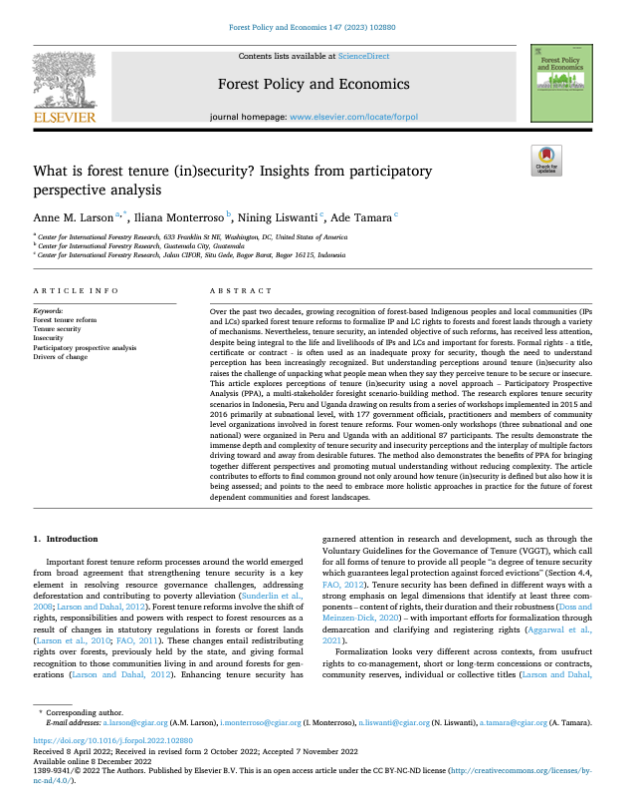What is forest tenure (in)security? Insights from participatory perspective analysis
Over the past two decades, growing recognition of forest-based Indigenous peoples and local communities (IPs and LCs) sparked forest tenure reforms to formalize IP and LC rights to forests and forest lands through a variety of mechanisms. Nevertheless, tenure security, an intended objective of such reforms, has received less attention, despite being integral to the life and livelihoods of IPs and LCs and important for forests.



